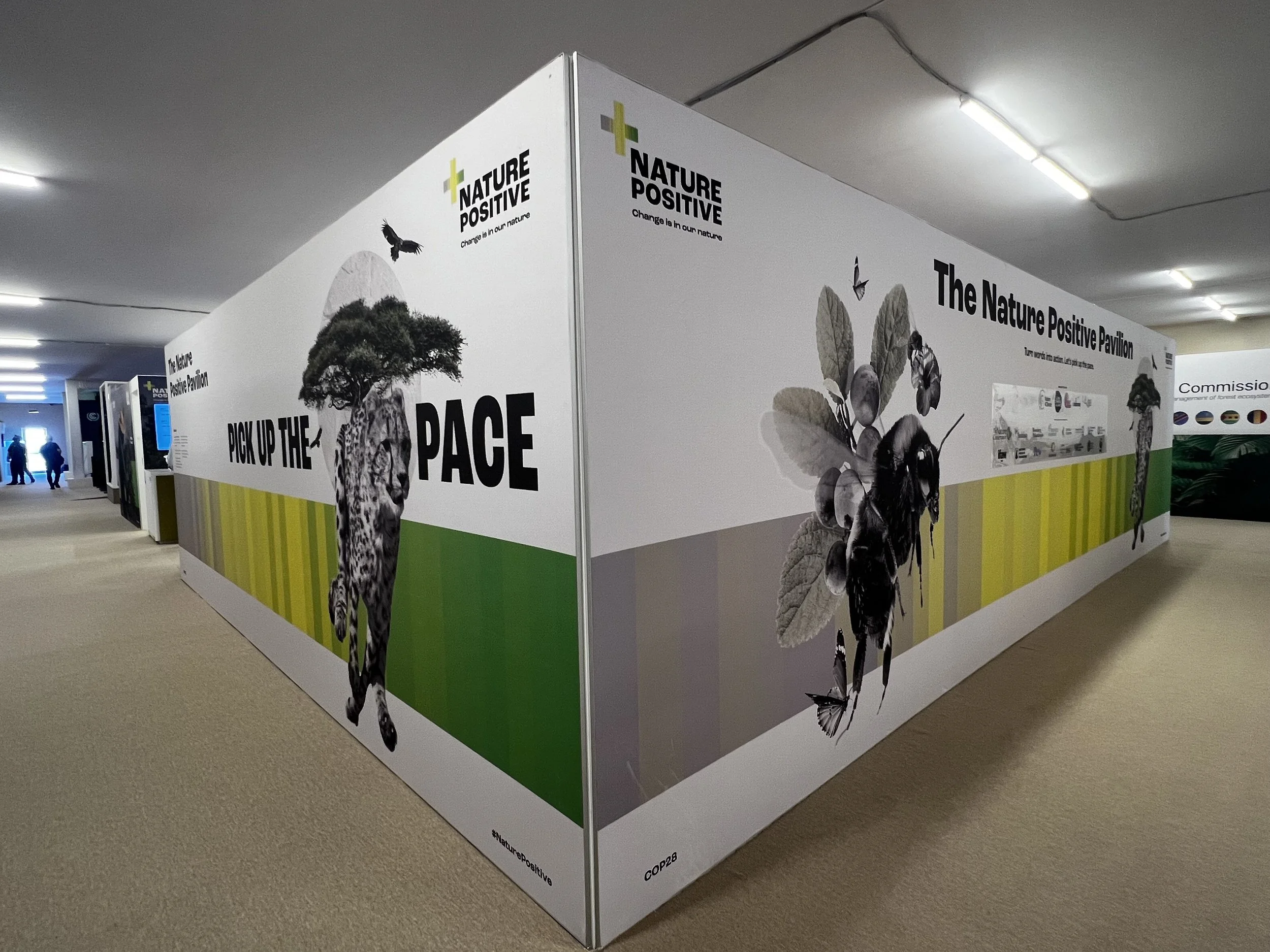What happened in week 1 of COP28?
This year, COP is in Dubai, sponsored by Coca Cola, and attended by a record number of (2400+) of fossil fuel lobbyists. Although that sounds odd for an environmental conference, it is perhaps rather symptomatic of the fact we are at the point of ‘climate boiling’.
The green recovery following COVID-19 that many had hoped for has largely failed to materialise. Instead, carbon emissions have continued soaring, and fossil fuels remain dominant, with annual coal consumption reaching a near all-time high. Although the consumption of renewable energy (solar and wind) grew a robust 17% between 2021 and 2022, it remains roughly 15 times lower than fossil fuel energy consumption.
So how’s decarbonisation going? Not that well, really.
But there is plenty happening at COP28 that gives us hope at MSQ/Sustain that we will change our course and remain within 1.5°C of warming.
Here are 10 positive actions on climate from week 1 of COP28
Phase out vs. phase down of fossil fuels
More money for Loss and Damage
$890 million to support food security
Colombia endorses fossil fuel non-proliferation treaty
Tripling renewable energy and doubling energy efficiency
Zero-methane emissions pledges
Nature Positive becomes mainstream
Health on the agenda for the first time
Greater integrity for voluntary carbon market
First Global Stocktake
Phase out vs. phase down of fossil fuels
You heard it here first, the final agreement will potentially call for an "orderly and just" phase out of fossil fuels. This is big news and will hugely impact carbon markets, financial flows, and investments across every sector.
Why it matters: We can’t stay within a safe boundary of warming without phasing out fossil fuels.
Gas flaring. Credit: Stefano Campolo / Flickr.
More money for Loss and Damage
More money through the Loss and Damage Fund. This will support the most vulnerable and poorest countries to keep up with the rising costs associated with climate change-driven extreme weather events.
Why it matters: Those least responsible for the climate crisis are also the most affected by it.
$890 million to support food security
CGIAR, the world’s largest publicly-funded agricultural research network, has secured more than USD $890 million to accelerate progress against the global food and climate crises.
Why it matters: Climate change is fueling the largest food crisis in modern history. More than 780 million people are affected by hunger, a number that is expected to grow significantly with every degree the world warms.
Colombia endorses fossil fuel non-proliferation treaty
Colombia is the first big economy to endorse a fossil fuel non-proliferation treaty to explicitly stop the expansion of fossil fuel exploitation and manage a just transition away from coal, oil, and gas to clean energy.
Why it matters: It is the first big economy to do this and sends the right signals to many like-minded governments.
Tripling renewable energy and doubling energy efficiency
118 countries have agreed to triple renewable power generation capacity to 11,000 GW, and double energy efficiency this decade.
Why it matters: This marks a significant step towards a transition away from fossil fuels.
Zero-methane emissions pledges
50 oil and gas companies pledged to reach near zero-methane emissions by 2030.
Why it matters: Reducing methane is the most effective lever to rapidly halt temperature rise, as it is 28 times more potent than CO2. 70% of energy-related methane emissions are abatable with existing technologies.
Nature Positive becomes mainstream
Our Nature Positive campaign becomes mainstream. The biggest pavilion space within the Blue Zone. Mentioned within King Charles’ opening speech. A film voiced by Robert Plant. Nature is having its moment during the climate COP.
Why it matters: We can’t stay within 1.5°C without nature, and nature can deliver ⅓ of the emissions reductions needed to stay within global warming goals. Species have declined 69% since 1970 - we need to reverse this trend.
King Charles addresses COP28. Credit: Christophe Viseux/UNFCCC.
Health on the agenda for the first time
Health is on the agenda for the first time, with this being the first year that health had a dedicated thematic day (3 December) on the presidency program. Recognition of the climate-health nexus is growing.
Why it matters: Climate and health are linked. An understanding of this will help accelerate government action on climate.
Greater integrity for voluntary carbon market
Companies are working together to create greater integrity for the voluntary carbon market. Several actors in the space, including VCMI, Science Based Targets initiative, GHG Protocol, and The Integrity Council for the Voluntary Carbon Market (ICVCM), came together to establish an End-to-End Integrity Framework. This framework provides consistent guidance on decarbonisation and the use of offsets for residual emissions, which will help businesses in their journey to net-zero.
Why it matters: Carbon markets rely on trust and companies need to account for the carbon they emit, tonne for tonne.
First Global Stocktake
The first Global Stocktake. An inventory of climate action in line with the Paris Agreement. The draft text outlines the urgency of taking action on the climate crisis. It highlights that there is a ‘rapidly narrowing window’ to raise ambition and implement existing commitments in order to limit warming to 1.5°C above pre industrial levels.
Why it matters: The Global Stocktake informs the next round of climate action plans under the Paris Agreement (nationally determined contributions, or 'NDCs', which are country specific emissions targets) to be put forward by 2025.
We are all getting increasingly anxious about the nature and climate crisis.
But the private sector can be a leader if governments fail to act. The first movers will benefit by avoiding economic shocks and improving operational resilience. Furthermore, we know that action on climate and nature is what investors, regulators, and consumers want.
It’s been a busy first week of COP28, and MSQ/Sustain will be bringing you the full rundown of the whole conference next week - stay tuned!
To learn more, please reach out to MSQ/Sustain. We’d love to chat to you!







